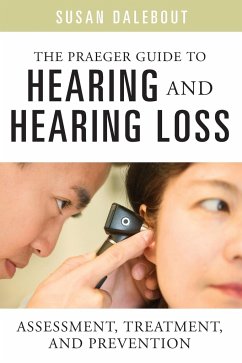
A Guide to Weight Loss Surgery
Professional and Personal Views
Versandkostenfrei!
Versandfertig in 1-2 Wochen
88,99 €
inkl. MwSt.

PAYBACK Punkte
44 °P sammeln!
With obesity rising at alarming rates in the US, UK, and developed countries around the world - so much that the US Department of Health has officially classified obesity as an illness and the World Health Organization has dubbed it a pandemic - weight-loss surgery is also on the rise. Traditional weight-loss programs - diet, exercise, and pharmaceuticals - are only effective for significant and sustained weight loss for about 10 percent of all people who try. The results are even more dismal for the obese aiming to lose not just a few pounds, but 50, 75, or more. And their health lies in the ...
With obesity rising at alarming rates in the US, UK, and developed countries around the world - so much that the US Department of Health has officially classified obesity as an illness and the World Health Organization has dubbed it a pandemic - weight-loss surgery is also on the rise. Traditional weight-loss programs - diet, exercise, and pharmaceuticals - are only effective for significant and sustained weight loss for about 10 percent of all people who try. The results are even more dismal for the obese aiming to lose not just a few pounds, but 50, 75, or more. And their health lies in the balance, because obesity or morbid obesity (100 pounds or more overweight by medical standards) increases by 50 to 100 percent their risk of developing heart disease, high blood pressure, diabetes, and certain cancers. Weight-loss surgery, however, is effective in bringing 80 percent of obese people to or close to average weight for their height, explains Dr. Hamilton, an Instructor at Harvard Medical School. And most sustain that weight loss for at least 10 years. Hamilton doesn't perform such surgeries, but this Tufts-educated doctor has more than general medical insight. She had the surgery herself six years ago, reducing from the size 20 she was then to the size 8 she is now. Surgical weight loss is unequivocally more effective than any other method, she says. Certainly there are complexities, risks, and some grueling decisions involved. But life as an obese person can be more risky to health and more grueling to mental health, she adds. The National Institutes of Health apparently agree, as NIH has issued recommendations for morbidly obese people to have weight-loss surgery. In the United States alone weight-loss surgeries have risen from 12,700 in 1988 to more than 78,000 in 2005. Still, fewer than one percent of the patients who fit the requirements for weight-loss surgery are ever referred to such a specialist, says Hamilton. And in blacks, where the prevalence of obesity is even higher, the referral rates are even lower, she adds. Hamilton makes clear the rewards, and the risks, of surgery that reduces stomach size or removes a piece of the intestine so calories cannot be absorbed. This book includes interviews with previously obese males and females who've had the surgery, as well as descriptions of the procedures, recovery times, costs, and insurance issues.












